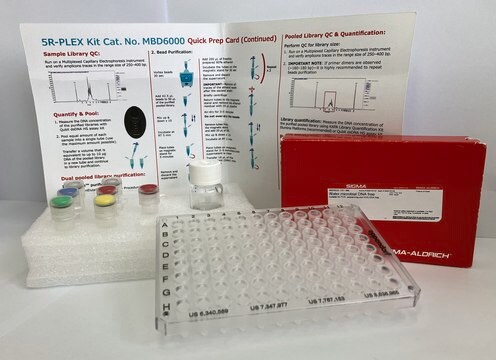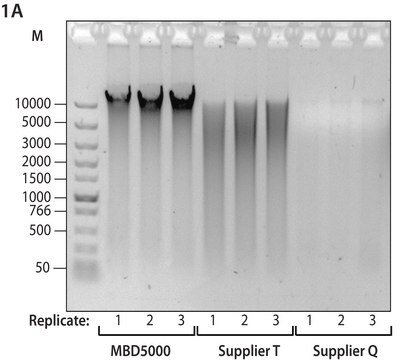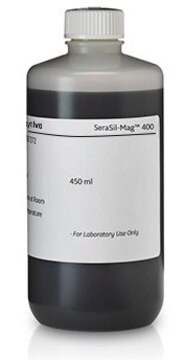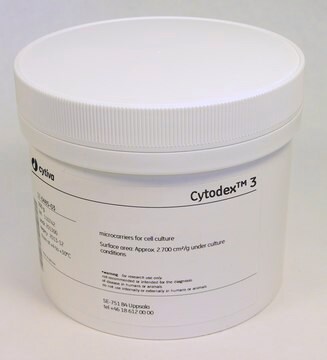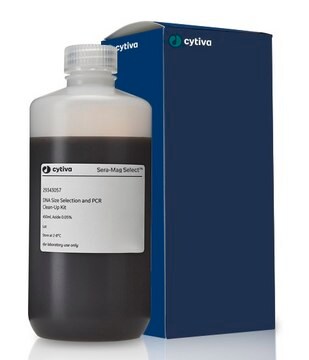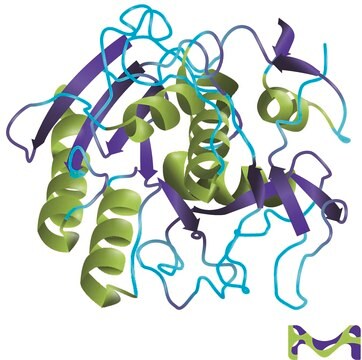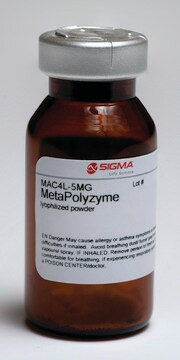Wszystkie zdjęcia(1)
Kluczowe dokumenty
MBD6009
5R-PLEX beads
for PCR purification
Synonim(y):
5R-PLEX SPRI beads
Zaloguj sięWyświetlanie cen organizacyjnych i kontraktowych
About This Item
Kod UNSPSC:
12352200
NACRES:
NA.55
Polecane produkty
Opis ogólny
Solid Phase Reversible Immobilization (SPRI) beads are magnetic beads that can be utilized for DNA purification and size selection. The 5R-PLEX beads are SPRI beads designed to easily separate the desired PCR amplicon from nucleotides, adapters, primers, and primer dimers by efficient purification and size selection. The magnetic beads are provided in a ready to use suspension that enables fast and efficient application even in high throughput applications with automated liquid handling. The beads are formulated with NaCl and high purity PEG as the crowding agent.
Zastosowanie
- NGS library preparation, including 16S and 18S
- Approved to use in ultrasensitive 5R-Plex (SMURF) library preparation(2,3,4) for degraded samples
- PCR reaction clean up
- Amplicon size selection
- DNA purification and manipulation (replacing elution buffer, concentrating the sample)
Cechy i korzyści
- Ready to use
- Compatible with automated liquid handling
- Easy size selection by changing the volumetric ratio of beads to samples
Ta strona może zawierać tekst przetłumaczony maszynowo.
Kod klasy składowania
10 - Combustible liquids
Klasa zagrożenia wodnego (WGK)
WGK 1
Certyfikaty analizy (CoA)
Poszukaj Certyfikaty analizy (CoA), wpisując numer partii/serii produktów. Numery serii i partii można znaleźć na etykiecie produktu po słowach „seria” lub „partia”.
Masz już ten produkt?
Dokumenty związane z niedawno zakupionymi produktami zostały zamieszczone w Bibliotece dokumentów.
Lishay Parhi et al.
Nature communications, 11(1), 3259-3259 (2020-06-28)
Fusobacterium nucleatum is an oral anaerobe recently found to be prevalent in human colorectal cancer (CRC) where it is associated with poor treatment outcome. In mice, hematogenous F. nucleatum can colonize CRC tissue using its lectin Fap2, which attaches to
Nasz zespół naukowców ma doświadczenie we wszystkich obszarach badań, w tym w naukach przyrodniczych, materiałoznawstwie, syntezie chemicznej, chromatografii, analityce i wielu innych dziedzinach.
Skontaktuj się z zespołem ds. pomocy technicznej